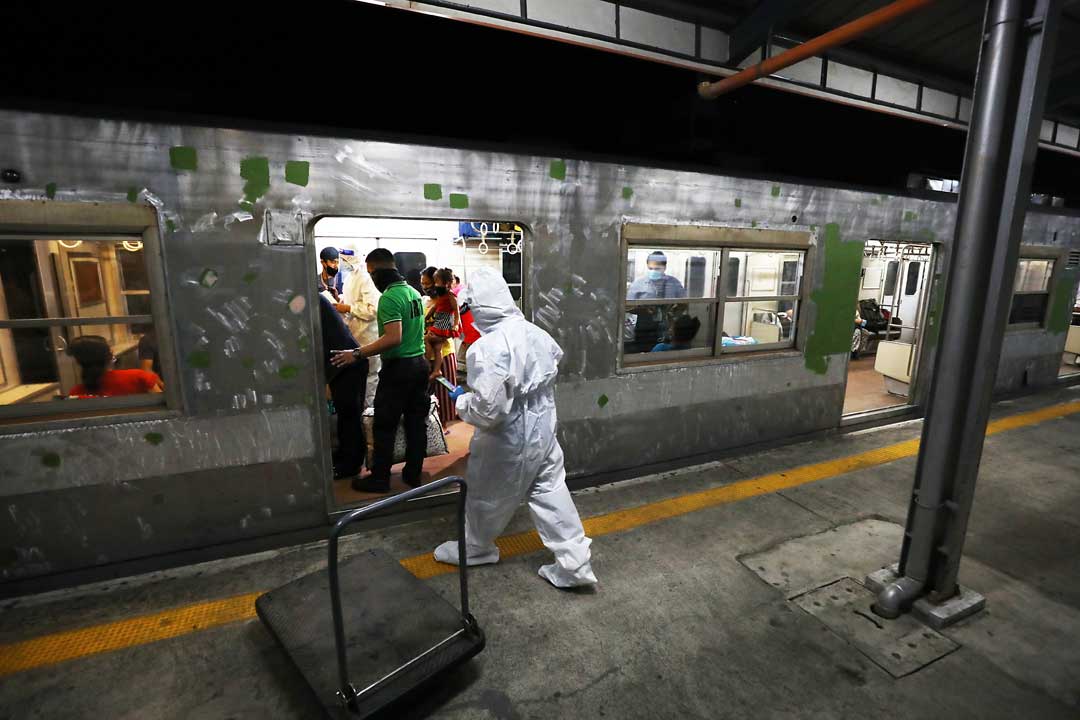Full foreign entry likely to help modernize railway sector

By Arjay L. Balinbin, Senior Reporter
A PROPOSED LAW that would allow 100% foreign ownership in public services is expected to accelerate the modernization of railways and subways, according to companies involved in railway projects.
The Senate last week approved on third and final reading a bill amending the Public Service Act (PSA), or Commonwealth Act No. 146, to relax restrictions on foreign investment in public services such as telecommunications, air carriers, domestic shipping, railways, and subways.
Light Rail Manila Corp. (LRMC), the private operator of Light Rail Transit Line 1 (LRT-1), said the measure will help spur investments in the transportation sector.
“This will certainly help bring in more investments and modernize the transport sector leading to better services, so we think this is a welcome development,” LRMC Spokesperson Jacqueline S. Gorospe told BusinessWorld in a phone message on Dec. 17.
LRMC is currently building the LRT-1 Cavite Extension. The project aims to add an 11.7-kilometer Baclaran-Bacoor, Cavite segment to the current 18.1-kilometer train line. The new stretch will have eight stations. It is expected to be fully operational by the second quarter of 2027.
“LRMC has always looked at best practices and working with leaders from different industries; we think this legislation will allow more of the best practices to emerge,” Ms. Gorospe added.
Meanwhile, Philippine Infradev Holdings, Inc. President and Chief Executive Officer Antonio L. Tiu said the proposed legislation “will be a boost to Build, Build, Build,” the Duterte administration’s flagship infrastructure program.
“Let us wait until [the] pandemic is over, [the result] should be positive,” he added.
Philippine Infradev’s wholly owned subsidiary is currently building the Makati City subway. It is expected to be operational by January 2026. The Fiscal Incentives Review Board recently approved the grant of tax incentives for the subway project.
Sought for comment, transport expert Rene S. Santiago said that “removing legal obstacles is first step, but will not automatically lead to more foreign investments in railways and subways because of the inherently poor financial returns.”
“It is strange to classify tollways as public utility (in the Senate version of the bill), but not railways and subways,” he told BusinessWorld in a phone message. “All three share similar characteristics.”
Unlike railways and subways, tollways will still be subject to the 40% foreign ownership limit.
For his part, Terry L. Ridon, convenor of InfraWatch PH, said in a separate phone message that the Philippine Senate is “mistaken if it thinks that merely opening up to full foreign ownership of public utilities and services will bring in more foreign investments to the sectors.”
“The main binding constraint to foreign investment was never nationality restrictions, but the governance climate in the country, such as whether businesses will be subjected to regulatory capture, red tape and corrupt activities,” he added.
LRMC is the joint venture of Ayala Corp., Metro Pacific Light Rail Corp. and Macquarie Infrastructure Holdings (Philippines) Pte. Ltd. It holds the P65-billion, 32-year PPP contract to operate LRT-1 and build its extension to Cavite.
MPIC is one of three Philippine subsidiaries of Hong Kong’s First Pacific Co. Ltd., the others being PLDT, Inc. and Philex Mining Corp. Hastings Holdings, Inc., a unit of PLDT Beneficial Trust Fund subsidiary MediaQuest Holdings, Inc., maintains an interest in BusinessWorld through the Philippine Star Group, which it controls.



